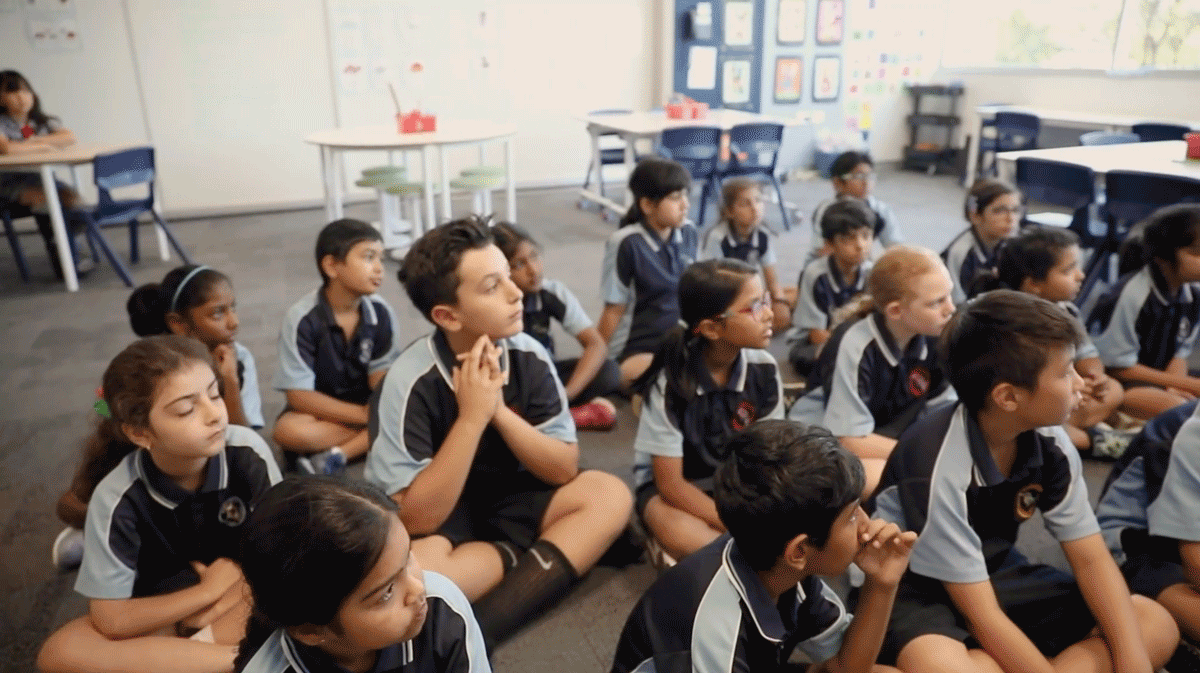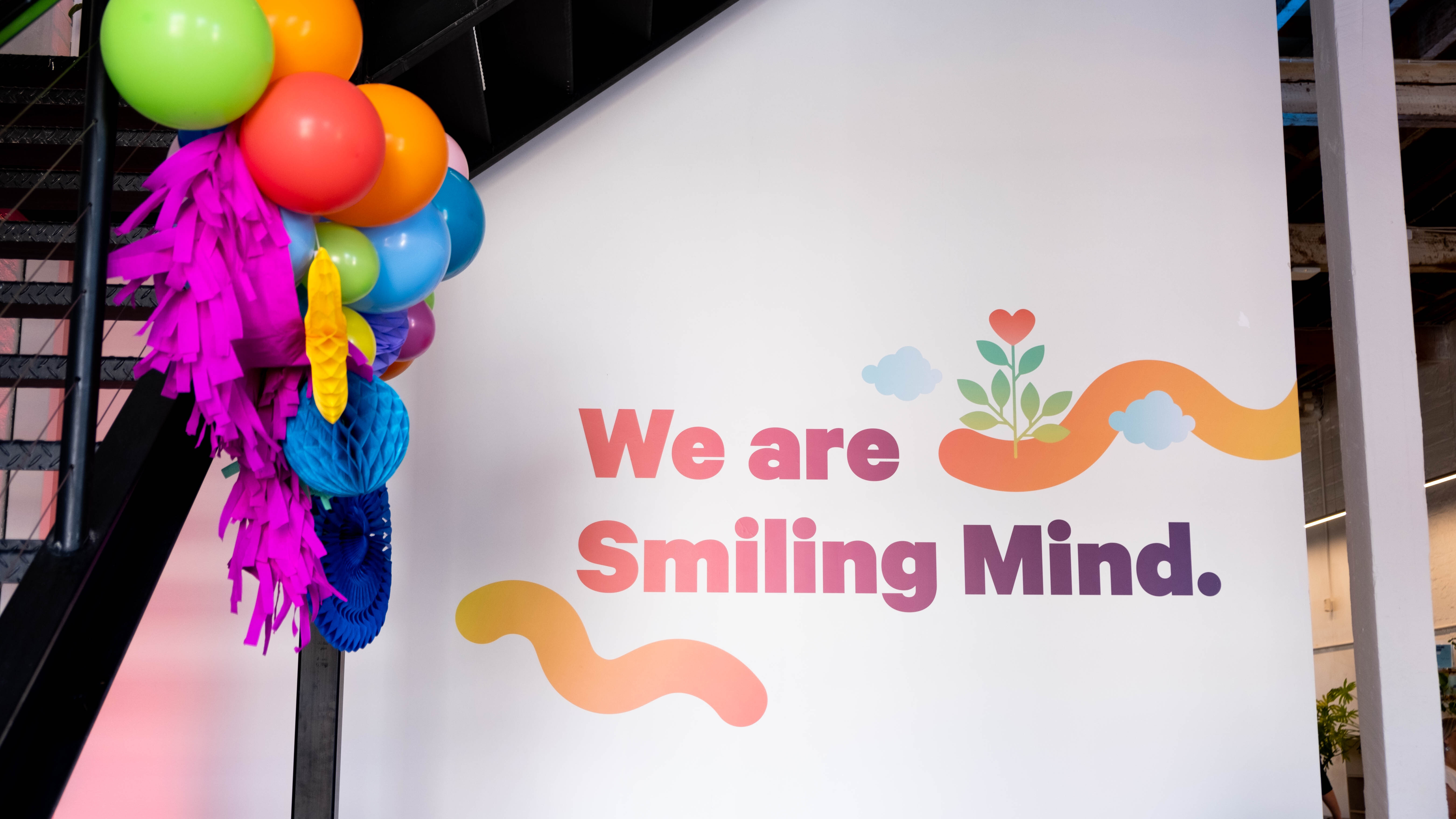Australia’s mental health crisis is now in plain sight. The impacts of the pandemic compounded by multiple climate disasters and crippling cost of living is taking its toll on families across our nation. The further deterioration of our mental health is clearly visible, either through personal experience or supporting loved ones, friends and colleagues.
The mental health of children has often been overlooked. Whether it gets bundled into conversations about development and behavioural challenges or dismissed as something they will ‘just grow out of’, it is only recently the mental health of children has started to come into focus - and rightly so.
The burden of mental ill-health in children is considerable. Pre-pandemic data suggests that 1 in 7 primary school aged children experience mental illness (Lawrence D, Johnson S, Hafekost J, Boterhoven De Haan K, Sawyer M, Ainley J et al. 2015. The mental health of children and adolescents. Report on the second Australian Child and Adolescent Survey of Mental Health and Wellbeing. Canberra: Department of Health).
50% of all mental health conditions have an onset before the age of 14 (Kessler, RD et al. (2005). Lifetime prevalence and age-of-onset distributions of DSM-IV disorders in the National Comorbidity Survey Replication. Archives of General Psychiatry, 62: p. 593-602). Emerging data post-pandemic provides us with warning signs these statistics could be on the rise.
Our clinical mental health system is already overwhelmed and parents can attest to the challenges of accessing specialist services for their children. The difficulty in accessing services may account in part for 155% increase in parents and children subscribing to Smiling Mind’s preventative mental health programs through the pandemic.
The recently launched National Children’s Mental Health and Wellbeing Strategy shone a light on the importance of taking progressive approaches responding to children's mental health and wellbeing. Pointing to the importance of families and schools in supporting children’s social and emotional development and highlighting the need to focus on prevention based approaches during the formative early years.
If we want to see better mental health outcomes and a reduction in mental illness for future generations, now is the critical time for action. It is imperative we learn from the investigations into the existing mental health system such as the Productivity Commission report into mental health and the Royal Commission into Victoria’s mental health system and adhere to the guidance laid out in the National Child Mental Health and Wellbeing strategy.
The current mental health crisis requires that we build a system that focuses on children’s mental health and wellbeing and prioritises building protective factors to prevent mental ill health rather than remaining focused on diagnosis and treatment alone. At the core of a more sustainable and effective mental health system will be the highest level of focus on promotion and prevention - so we can urgently stem the tide of mental ill-health by building mental fitness skills early in life, rather than waiting until young people self-harm, express suicidal ideation or display any number of stress, anxiety, depression and other mental illness symptoms.
While the recent investment by the Victorian Government to embed mental health coordinators within primary school is a huge step forward in making generational change in mental health, it is critical to ensure this model is not simply an assessment and triage service that funnels children into an already overloaded mental health service system. These roles have the opportunity to transform the way we support children and their families and embed a proactive and preventative approach across whole school communities.
If we are truly aiming to change the mental health experience of future generations, we must invest in supporting children to develop the skills they need to thrive and reduce social determinants of mental ill health by ensuring accessibility to learning opportunities that support the child and the family unit.
Ensuring children can access appropriate crisis and clinical services is essential, balancing this with longterm preventative initiatives is difficult but necessary. A system that delivers acute mental health services with an equal focus on prevention, will position us far better to manage future demand for clinical services because we will be actively working to reduce the overburden on these services.
In the same way we have reaped the benefits of drastically reduced incidence of skin cancer later in life through a significant investment in the promotion of being sun smart and supporting schools to prevent sun exposure for children, a preventative approach to mental illness and the promotion of mental health will reduce the impact of mental illness for future generations.
The Victorian Government’s new investment in school based mental health coordinators offers the opportunity to drive real impact through the considered implementation of a broad suite of complementary approaches that focus on mental health promotion, prevention, treatment and ongoing support during the critical early years of life.
To realise this significant impact on the lives of millions of children - and the potential to create significant generational change, these champions will need to be equipped with the tools, resources and skills to support a proactive approach to mental health and wellbeing within the school environment. These new coordinators should be armed with the resources they need to shift the focus from reactive to proactive and embed a positive and strengths based approach to emotional wellbeing within each school.
The focus on prevention is echoed by numerous health experts worldwide, including the World Health Organisation which has long touted the benefits of an integrated approach to mental health, positing that public health strategies that combine prevention and promotion often lead to a reduction in stigma and an increase in cost-effectiveness (World Health Organisation, 2002. Prevention and Promotion in Mental Health. 2002).
Just like the changes we’ve made to how we approach the prevention of physical conditions amongst adults such as heart disease, cancer and other preventable illnesses – if we act now and invest in the right approach, we can have the same effect on mental health for our future generations.
After years of exhaustive analysis and multiple enquiries, now is the time for action and we are heartened to see the Victorian Government taking this first step. What is plain to see is that if we don’t act now, our communities will bear the enormous economic and psychological cost of this mental health crisis for generations to come. With more Australians dying by suicide than through road trauma every year in this country it’s time we applied the same preventative approach to mental health to ensure more young Australians can thrive.
About Dr Addie Wootten
Dr Addie Wootten’s experience as a Clinical Psychologist combined with comprehensive knowledge of research and e-health bring both academic expertise and commercial acumen to her role as CEO of Smiling Mind. Under Addie’s stewardship, Smiling Mind provides preventative mental health programs that deliver real generational change for Australian families.
A widely published mental health commentator and highly-regarded speaker, Addie’s leadership and passion for empowering people to take a positive and proactive approach to their own mental health has seen the organisation grow beyond a mindfulness app to become an active part of the mental health ecosystem.












.jpg)




